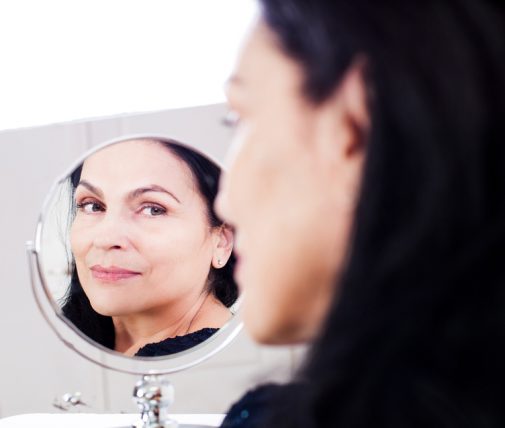
If you look older than your actual age, it might not be entirely your fault. A new study has isolated a specific gene that plays a clear role in a person’s appearance.
Past research has acknowledged that one’s appearance is significantly influenced by environmental or lifestyle factors, such as sun exposure, smoking or overall “hard living.” But Dutch and British researchers found that people who had certain forms of a gene called MC1R in their genetic makeup looked about two years older than their age, even after accounting for environment and lifestyle factors.
MC1R is a gene more directly linked to pale skin and red hair, but it exists in many forms. Variations of the gene can make some people appear older, while a different version might make someone look younger.
“Discovering this first gene involved in perceived age is important, because it opens the door for identifying more, which we know exist, and we now know are possible to find,” said study co-leader Manfred Kayser in a press release. “Our finding marks another step in understanding aging differences between people and provides new leads to identify the molecular links between perceived age, chronological age and biological age.”
While researchers hope the study leads to finding ways to keep people looking younger longer, Dr. Kevin Krippner, an Advocate Medical Group psychologist at Advocate BroMenn Medical Center in Normal, Ill., cautions against becoming too obsessed with one’s personal appearance.
“Our society has increasingly pushed our population to focus more on appearance, and this can have some negative effects on self-esteem,” he says. “Most people do not look like the models we see on television and in print ads.”
Dr. Krippner thinks a better emphasis for everyone should be on becoming healthier, rather than merely looking youthful.
“When people become healthier, they generally feel better and live longer,” he says. “And a byproduct is that they also look better.”
For those who may be unhappy or insecure about their appearance, Dr. Krippner offers the following tips:
- Acknowledge and accept the aging process. No one looks as good now as they did many years ago.
- If you must compare, compare to others in your general age range and life circumstance, rather than the models portrayed in the media.
- Most importantly, focus on your good qualities, those not necessarily related to appearance. These are much more important qualities in all of us.





